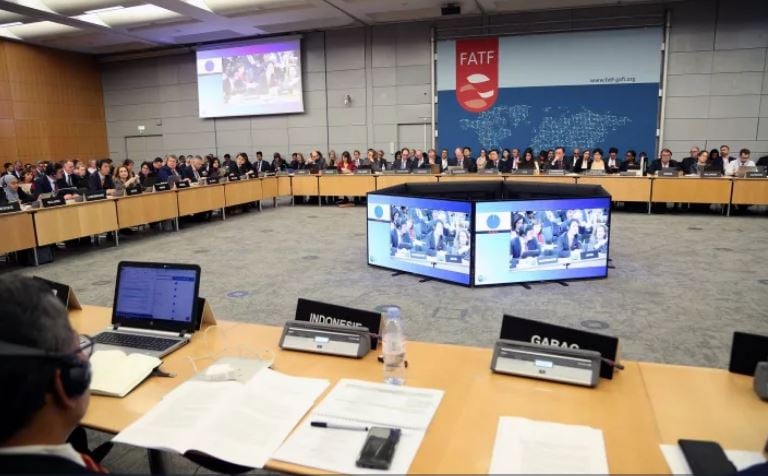Experts explain why Pakistan is still on FATF grey list

LAHORE: The second plenary meeting of the Financial Action Task Force (FATF) on June 25, 2021, was a significant day for Pakistan, as the government had high hopes of coming out of the grey list. However, despite the appreciation by the FATF, Pakistan’s significant progress for complying with 26 of the 27 action items initially agreed in June 2018, it refused to remove the country from the list.
Why did that happen? What more is required to be done by Pakistan to come out of the FATF grey list? To get more clarity on the situation, BOL News recently spoke to experts.
Advocate Abdul Rauf Shakoori of the high court, who is an expert on the matters relating to Anti-Money Laundering, as well as Countering Financial Terrorism (AML/CFT), said that the FATF rating is based on the technical compliance and its effectiveness.
“Though we have made progress on technical compliance, its effectiveness is based on 11 immediate outcomes. Pakistan is graded as low on 10 immediate outcomes and medium one on immediate outcome, which is comparatively the lowest rating assigned to any country in the entire region,” Shakoori explained.
He maintained Pakistan have failed to address the concerns of the international community on the international cooperation, implementation of UNSC 1373, concerns related to DNFBPs, implementation of sanctions and beneficial ownership requirements, investigation and prosecution are not aligned with Pakistan’s risk profile and monitoring of DNFBP’s concerning proliferation financing requirements.
“Moreover, the FATF encourages Pakistan to continue to make progress to address as soon as possible the one remaining CFT-related item by demonstrating that the terrorism financing investigations and prosecutions target senior leaders and commanders of the UN-designated terrorist groups,” Shakoori said.
For him, the way forward for Pakistan was to improve its compliance by amending the laws and bringing them at par with the international standards.
“The current laws dealing with [the] AML-CFT contradict the parameters formed to deal with a risk-based approach. The monitoring of AML-CFT-related matters through the National Executive Committee (NEC) consisting of politically exposed persons (PEPs) pose greater risks,” he said.
Shakoori believes that the creation of multiple bodies and committees with overlapping jurisdiction as their scope is confusing and does not meet the global standards.
“Those sectors, which are considered the gateways for money laundering are being monitored by their bodies. The regulations of DNFBPs through self-regulatory bodies go against the principles of independence and could lead to conflicts of interest,” he said.
Moreover, when it comes to mutual legal assistance, the restrictive condition imposed on its provision is a significant deficiency, noting the risk and context of Pakistan. Therefore, Pakistan’s compliance with R.38 was significantly compromised.
He added that the most important is compliance with UNSC resolution 1373 and action against senior leaders and commanders of UN-designated terrorist groups.
“However, we have not made any progress so far, instead, our foreign minister, as well as our interior minister, is working on the image building of the Taliban by praising their wisdom,” the AML-CFT expert added.
For Shakoori, Pakistan needed to amend the laws and regulations as per international standards and comply with UNSC resolution in letter and spirit so that our technical compliance should be rated as effective. “Otherwise, we will continue to face this embarrassment which will damage our image as well as our economy,” he feared.
Agreeing with Shakoori, Dr Ikramul Haq, leading tax consultant and co-author of ‘Pakistan Tackling FATF: Challenges and Solutions’ told Bol News that the most disturbing aspect is that the overall AML-CFT framework revolves around the National Executive Committee on money laundering (ML) that is governed by ministers.
“The chairman committee and some of the ministers are facing corruption charges as well as other crime-related allegations,” Dr Haq alleged.
For him, the new amended law, instead of forming an independent authority having powers to deal with all types of financial crimes, has kept the control and power with them so that they can operate it as per their aspirations.
Dr Haq said moreover, the new law does not specify any priorities except listing ambiguous procedures to deal with AML–CFT matters. “There is neither any authentic procedure available regarding filing suspicious transaction reports (STR), nor does it mention who will identify threat patterns and trend information to educate the STR filing entities so that they can contribute towards countering the illicit flow of funds,” he said.
Dr Haq suggested that the websites of National FATF Secretariat and FMU must be linked directly to national and international sources of information and should provide options where people can search for designated people/proscribed/listed entities or those with criminal records.
“This will help to make risk assessments beforehand in an efficient manner and, in order to facilitate general public and business concerns, a helpdesk link and live chat option needs to be added where people can raise their queries,” he said.
For Dr Haq, this casual behavior of regulators and bodies formed for AML/CFT is a matter of great anxiety.
“We are living in an era of technology and without effective use of these platforms and tools we cannot achieve the desired output. If this situation persists then we should not expect any positive outcome in the near future,” he maintained.
Dr Haq further said: “We as responsible and concerned citizens, have been raising alarm bells for a long time but these have fallen on deaf ears.
“We hope that responsible functionaries will go through these considerations and will steer Pakistan out of the FATF grey list and satisfy the world community that it has an unshakable will to counter threats related to AML/CFT,” he concluded.
Read More News On
Catch all the Business News, Breaking News Event and Latest News Updates on The BOL News
Download The BOL News App to get the Daily News Update & Live News.